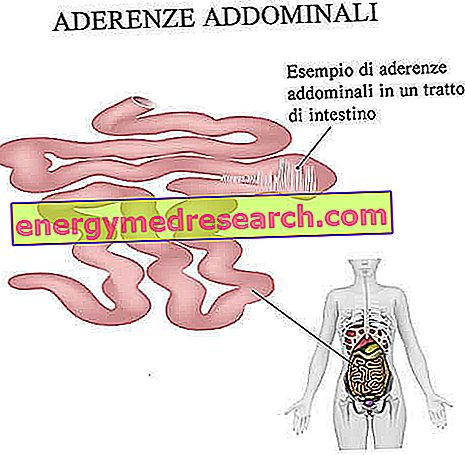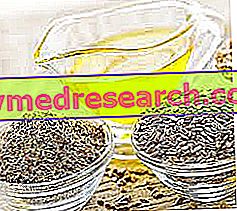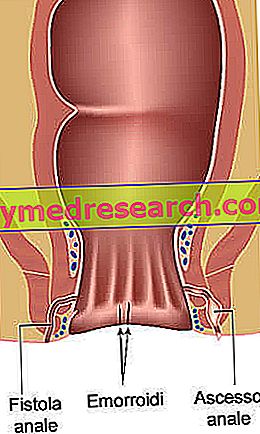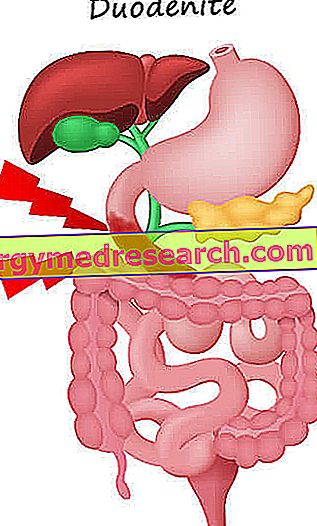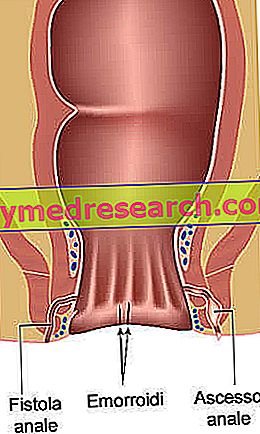Generality Abdominal adhesions are bands of fibrous-cicatricial tissue, which glue abnormally normally disjoint parts of the same organ of the abdomen or two distinct organs / tissues of the abdomen located in close contact with each other. Like the adhesions that affect other regions of the human body, abdominal adhesions are a result of repair mechanisms that can be set in motion by tissue lesions of a surgical intervention, a particular infection, a strong blunt trauma, a severe inflammatory condition or exposure to ionizing radiation
Category bowel health
Constipation: What is it? Constipation , also called constipation, is a condition of physical malaise that affects the act of evacuating the stools. The manifestation of constipation would be interpreted as a SYMPTOM and not as a disease; nevertheless, it is not uncommon to be used as a synonym for "irritable bowel syndrome"
Generality A perianal abscess is a collection of pus located near the anus or in the terminal portion of the rectum. This condition manifests itself as a painful swelling, covered by tense and intensely reddened skin. The perianal abscess is the result of an inflammatory process, which is caused, in most cases, by an aspecific infection, which originates from small glands located within the anal canal
Generality In the medical field, the term "coprolites" is used to indicate small masses of hardened and calcified fecal matter, similar to small stones, which form in the intestinal lumen. Curiosity: in paleontology, the coprolite - from the Greek kópros (dung) and líthos (stone) - is an excrement, produced by an animal that lived in the past, that has fossilized.
Generality The coprostasis is the stagnation of the faeces at the rectal level, followed by their hardening and drying up. Due to constipation, coprostasis is responsible for a variety of symptoms, including: inability to defecate, abdominal discomfort, fecal incontinence, nausea, vomiting, headache, loss of appetite, loss of body weight, dehydration, fever, confusion, tachycardia, increase in respiratory rate, etc
Chronic diarrhea and mood It is rather complicated to provide a universal definition of "chronic diarrhea", considering that each of us has a purely subjective conception of our intestinal activity. Some individuals tend to self-diagnose the disorder of "conical diarrhea" simply because the urge to go to the bathroom knocks on the door more than a few times a day
Diagnosis Like any disease or disorder, the diagnosis of chronic diarrhea begins with the anamnesis, or with the collection of symptoms reported by the patient. Here, the physician will first have to understand what the patient means when he claims to be suffering from "chronic diarrhea", given that each of us has a subjective conception of his own intestinal activity
General definition We speak of "conical diarrhea" to indicate an alteration of intestinal motility characterized by a number of daily evacuations greater than or equal to 3, with the emission of liquid or semi-solid faeces (diarrhea), that persists for at least three or four consecutive weeks Types of chronic diarrhea Based on the cause that causes it, chronic diarrhea can be divided into three main categories: TYPE OF CHRONIC DIARRHEA SUBTYPE DISTINGUISHING FEATURES Chronic watery diarrhea Osmotic (eg induced by osmotic laxatives such as magnesium salts and sorbitol, or by celiac dis
Generality Duodenitis consists of an inflammatory condition that affects the initial part of the small intestine, called duodenum. This disorder can occur both in acute and chronic form, and can be triggered by various factors of various origins and nature. Sometimes, these factors can also compete with one another in the development of inflammation
Important introduction Exponent of the new genus of enterococci, Enterococcus faecalis is a gram positive bacterium that usually populates the gastrointestinal tract of many men and other mammals. Until a few decades ago, Enterococcus faecalis was identified within the genus of non-haemolytic group D streptococci
Generality A perianal fistula is a tubuliform lesion (a small canal) that connects the terminal portion of the intestine with the skin around the anus. This channel represents the pathological evolution of an abscess , which in turn originates from the infection of one of the mucus-secreting glands present in the anal canal; from this infection comes a collection of pus, which reaches the skin and tries to make its way outward

